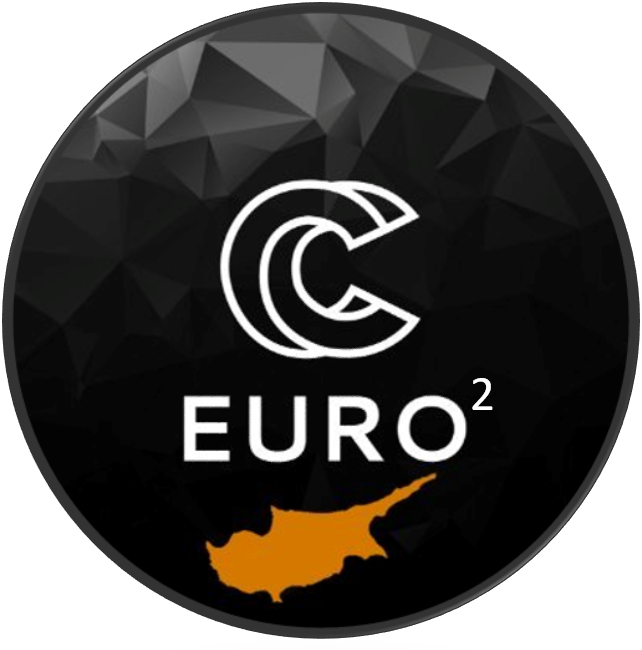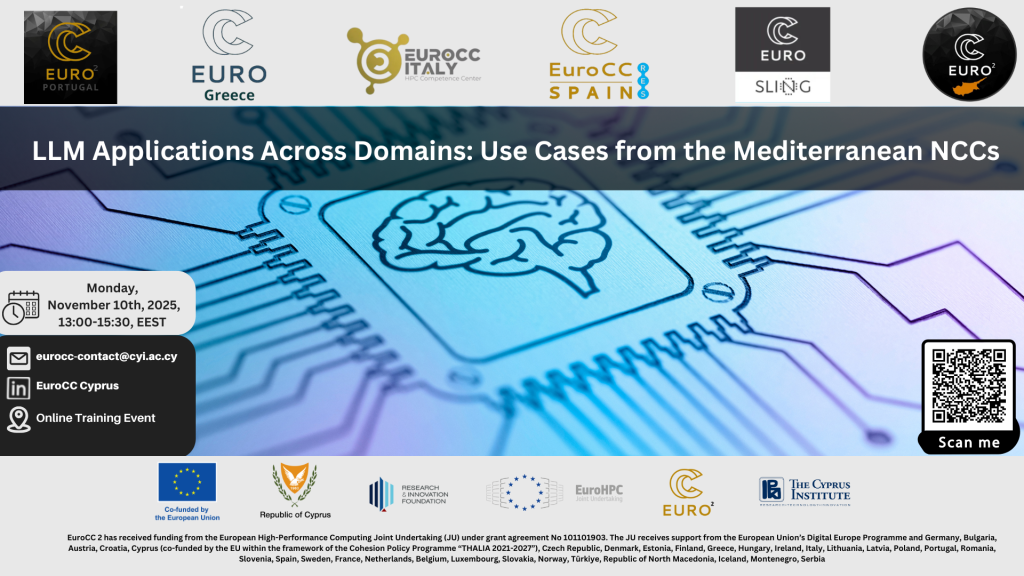
Date: Monday, 10 November 2025 13:00-15:30, Cyprus Time (GMT+2)
Venue: This training event is held as a online event. Please, connect to our live stream of the discussion, available on Zoom (Password: VsSCz1)
Language: English
Registration: Registration form here
Pre-requisites: Open to participants of all backgrounds; no prerequisites necessary.
Large Language Models (LLMs) are rapidly transforming research and industry alike, offering new capabilities for automation, understanding, and decision support across diverse sectors. This event, LLM Applications Across Domains: Use Cases from the Mediterranean NCCs, showcases practical examples of how National Competence Centres (NCCs) in the Mediterranean region are applying LLMs and related AI technologies to real-world challenges. Presentations will span topics such as secure private AI deployments, domain-specific fine-tuning for satellite communications, intelligent agents for cyber defense, steerable computer vision pipelines, multimodal archaeological site detection, and enhanced optical character recognition. Through these use cases, participants will gain insights into innovative approaches that leverage LLMs for science, industry, and society, highlighting both the opportunities and technical nuances of deploying generative AI responsibly and effectively
Agenda
13:00-13:10
Dr. Constantine Dovrolis, NCC Cyprus
Welcome And Intoduction
13:10-13:30
Dr. Luca Babetto & Mr. Andrea Proia , NCC Italy Vectoria Your Private AI In today’s context, where companies are increasingly pushed to integrate Artificial Intelligence solutions into their processes, secure and responsible data management is a non-negotiable requirement. Many generative tools currently available operate on external infrastructures, exposing sensitive information to remote servers and creating dependencies on closed or paid models. For many organizations – from SMEs to public institutions and large industrial groups – this way of adopting AI is neither sustainable from a security perspective nor from a governance standpoint. Designed by EuroCC Italy, Vectoria was created to address the need for security in AI systems. It is designed to operate entirely within the organization’s infrastructure, without entrusting data to third parties or public cloud systems. Based on the Retrieval-Augmented Generation (RAG) approach, Vectoria enables the creation of advanced chatbots capable of understanding and querying corporate documentation in a contextual, updatable, and verifiable way – all while maintaining full control over data, models, and metrics. |
13:30-13:50
Prof. Ioannis T. Christou, NCC Greece:
Fine-tuning Large Language Models for Satellite Communications Knowledge Management: Challenges and Impacts
The application of large language models (LLMs) to specialized fields, such as Satellite Communications (SatCom), presents unique challenges due to the extensive and cutting-edge knowledge required. We present a fine-tuning approach for adapting 7-billion-parameter instructed LLMs (Llama-3v and Mistral) to SatCom, using a proprietary corpus sourced from the European Space Agency (ESA) consisting of domain-specific PDF documents.
The confidential nature of this corpus imposes constraints on both model training and evaluation, demanding a sensible text extraction pipeline capable of handling complex structures, such as tables, to preserve critical information.
Our fine-tuning methodology employs a carefully configured process, followed by an automatic evaluation framework using a curated Q&A set tailored to SatCom. Models were created in both non-quantified and 8-bit quantized formats, ensuring feasibility for desktop-level inference. The fine-tuned models demonstrated a 6,6% improvement over the baseline LLM, as well as significant gains when compared to retrieval-augmented generation (RAG) methods.
13:50-14:10
Dr. Jani Dugonik, NCC Slovenia
AI Agents and LLMs for Modern Cyber Defense
Recent advances in artificial intelligence have transformed the landscape of cybersecurity research, particularly through intelligent agent-based simulations and large language models (LLMs). Traditional cybersecurity datasets are often static and outdated, limiting the capacity to train adaptive AI systems. To address this, we developed a dynamic synthetic simulation framework that transforms static research datasets into interactive, agent-based environments.
Building upon this foundation, our latest work integrates LLM-powered agents capable of generating, understanding, and classifying realistic phishing attacks in a controlled simulation. This presentation introduces the combined framework, where attacker agents simulate social engineering campaigns, and defender agents, which are supported by either classical machine learning or LLMs, analyze and detect phishing content. The integration of LLMs into the simulation framework opens new directions for adaptive cyber defense, human-in-the-loop training, and proactive threat intelligence.
14:10-14:30
Prof. Janez Perš, NCC Slovenia
LLM Steerable Computer Vision Pipeline
Foundation models plus ample compute make many “moderate” vision tasks solvable with minimal custom code. This talk introduces an LLM-steerable pipeline that compiles a brief YAML spec into end-to-end segmentation, zero-shot classification, and optional geometry checks, executed on GPU clusters.
A remote multimodal LLM (e.g., ChatGPT) generates the configuration based on sample images and human description of the task; a Python runner on HPC invokes SAM2 for mask proposals, CLIP for prompt-driven labels, and optional BLIP-3 VQA for per-crop verification. Crucially, this workflow may double as a data engine: it produces large, reasonably clean pseudo-labeled sets with little manual effort, enabling distillation into compact models that run without HPC.
14:30-14:50
Dr. Daniel Canedo, NCC Portugal
Uncovering Archaeological Sites from Aerial Imagery Using Vision Transformers
Archaeological site detection is entering a new era thanks to advances in remote sensing and artificial intelligence. Archaeological sites such as hillforts often have irregular and complex shapes, making them challenging to identify using conventional computer vision methods. Multimodal approaches that combine LiDAR-derived LRM images with aerial orthoimagery improve detection accuracy, but false positives remain a major problem.
In this talk, we explore how extending the principles of large language models (LLMs) to vision can address these challenges. By using cross-modal attention mechanisms, these models integrate multiple data sources, enabling precise boundary detection, reduced false positives, and scalable application across diverse landscapes and site types. A key element of this workflow is a human-in-the-loop refinement process, where archaeologists review and provide feedback on model predictions. This iterative collaboration enriches the training data, improves the system’s ability to distinguish true sites from background anomalies, and enhances overall detection reliability.
Results from Northwest Iberia show a 99.3% reduction in false positives after a single refinement cycle, and nationwide deployment in England demonstrates robust performance across varied site morphologies. By combining multimodal fusion, transformer-based architectures, and expert-guided refinement, this approach delivers both accuracy and interpretability. The talk will also discuss future directions, including predictive modelling to focus searches on high-potential areas, making large-scale archaeological surveys faster and more efficient.
14:50-15:10
Mr. Spiros Millas, NCC Cyprus
Enhancing Optical Character Recognition with Large Language Models
This presentation explores how Large Language Models (LLMs) enhance Optical Character Recognition (OCR) pipelines through contextual text correction, document understanding, semantic labeling, and information extraction. It will also highlight real-world use cases such as automated document processing, invoice and receipt parsing, identity verification, and multilingual text recognition.
By showcasing how LLMs add intelligence and context to OCR systems, this presentation illustrates how the combination of vision and language technologies is driving more accurate, efficient, and human-like understanding of text within images and documents.
15:10-15:30
Ms. Anna Cosp Garcia, NCC Spain
Open Discussion – Q&A
About the speakers
 Dr. Luca Babetto, NCC Italy: Graduated in Chemistry at the University of Padova. He obtained a Ph.D. in Molecular Sciences at the same university, with a thesis on theoretical investigations of lanthanide-based luminescent molecular thermometers. He worked on redox flow battery research within a project funded by IPCEI, in which he developed a high-throughput workflow for the discovery of new organic electrolytes. He is currently working as HPC Specialist in the POC business unit.
Dr. Luca Babetto, NCC Italy: Graduated in Chemistry at the University of Padova. He obtained a Ph.D. in Molecular Sciences at the same university, with a thesis on theoretical investigations of lanthanide-based luminescent molecular thermometers. He worked on redox flow battery research within a project funded by IPCEI, in which he developed a high-throughput workflow for the discovery of new organic electrolytes. He is currently working as HPC Specialist in the POC business unit.
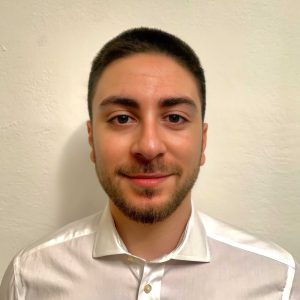
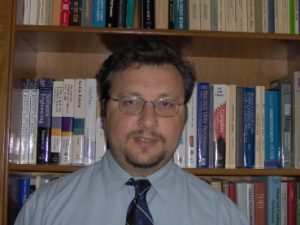 Dr. Ioannis T. Christou, NCC Greece: Ioannis T. Christou, Ph.D. holds a Dipl. Ing. Degree in Electrical Engineering from the National Technical University of Athens, Greece (1991), an M.Sc. (1993) and Ph.D. (1996), both in Computer Sciences from the University of Wisconsin at Madison (Madison, WI, USA), and an MBA from NTUA & Athens University of Economics and Business (2006). He has been with Delta Technology Inc. as a Senior Developer, with Intracom S.A. Development Programmes Dept. as an Area Leader in Data & Knowledge Engineering, and with Lucent Technologies Bell Labs as a Member of Technical Staff. He has been Professor of Big Data Mining at Athens Information Technology, Paiania, Greece, and an adjunct Professor at Carnegie-Mellon University. He has taught at many other Universities including Aalborg University in Denmark and the Democritus University of Thrace, Greece. He is currently an Associate Professor with the Dept. of Information Technology, Cybersecurity and Computer Science at the American College of Greece and a Sr. Research Data Scientist with the Dept. of Research and Innovation Development of Netcompany SouthEast Europe & EU Institutions, Luxembourg. He has published over 100 papers in peer-reviewed journals and conferences. Dr. Christou is a member of the Technical Chamber of Greece.
Dr. Ioannis T. Christou, NCC Greece: Ioannis T. Christou, Ph.D. holds a Dipl. Ing. Degree in Electrical Engineering from the National Technical University of Athens, Greece (1991), an M.Sc. (1993) and Ph.D. (1996), both in Computer Sciences from the University of Wisconsin at Madison (Madison, WI, USA), and an MBA from NTUA & Athens University of Economics and Business (2006). He has been with Delta Technology Inc. as a Senior Developer, with Intracom S.A. Development Programmes Dept. as an Area Leader in Data & Knowledge Engineering, and with Lucent Technologies Bell Labs as a Member of Technical Staff. He has been Professor of Big Data Mining at Athens Information Technology, Paiania, Greece, and an adjunct Professor at Carnegie-Mellon University. He has taught at many other Universities including Aalborg University in Denmark and the Democritus University of Thrace, Greece. He is currently an Associate Professor with the Dept. of Information Technology, Cybersecurity and Computer Science at the American College of Greece and a Sr. Research Data Scientist with the Dept. of Research and Innovation Development of Netcompany SouthEast Europe & EU Institutions, Luxembourg. He has published over 100 papers in peer-reviewed journals and conferences. Dr. Christou is a member of the Technical Chamber of Greece.
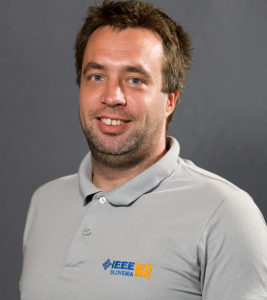 Dr. Jani Dugonik, NCC Slovenia: Jani Dugonik is a researcher at the Faculty of Electrical Engineering, Computer Science and Informatics, University of Maribor. His research interests include natural language processing, artificial intelligence, evolutionary optimization, and cybersecurity. He has been an active IEEE member for over 8 years, having served as Chair and currently Counselor of the IEEE Student Branch Maribor, Past Chair of the IEEE Computational Intelligence Society Slovenia, and Vice Chair of IEEE Young Professionals Slovenia. He is also a member of the IEEE Women in Engineering Region 8. In addition to his research and professional involvement, he has organized numerous workshops and events for primary and secondary school students, university students, and seniors, in collaboration with IEEE, ACM, and AEGEE.
Dr. Jani Dugonik, NCC Slovenia: Jani Dugonik is a researcher at the Faculty of Electrical Engineering, Computer Science and Informatics, University of Maribor. His research interests include natural language processing, artificial intelligence, evolutionary optimization, and cybersecurity. He has been an active IEEE member for over 8 years, having served as Chair and currently Counselor of the IEEE Student Branch Maribor, Past Chair of the IEEE Computational Intelligence Society Slovenia, and Vice Chair of IEEE Young Professionals Slovenia. He is also a member of the IEEE Women in Engineering Region 8. In addition to his research and professional involvement, he has organized numerous workshops and events for primary and secondary school students, university students, and seniors, in collaboration with IEEE, ACM, and AEGEE.
 Prof. Janez Perš, NCC Slovenia: Janez Perš is associate professor at the Faculty of Electrical Engineering, University of Ljubljana, and a member of the Laboratory for Machine Intelligence (LMI). His research and teaching span computer vision, machine intelligence, and embedded systems, with a strong focus on applying artificial intelligence to real-world problems such as autonomous vehicles, robotics, and precision agriculture. He has been an early and active adopter of AI-assisted tools in research, teaching, and academic communication, exploring how systems like ChatGPT can augment productivity, creativity, and critical thinking in academic contexts.
Prof. Janez Perš, NCC Slovenia: Janez Perš is associate professor at the Faculty of Electrical Engineering, University of Ljubljana, and a member of the Laboratory for Machine Intelligence (LMI). His research and teaching span computer vision, machine intelligence, and embedded systems, with a strong focus on applying artificial intelligence to real-world problems such as autonomous vehicles, robotics, and precision agriculture. He has been an early and active adopter of AI-assisted tools in research, teaching, and academic communication, exploring how systems like ChatGPT can augment productivity, creativity, and critical thinking in academic contexts.
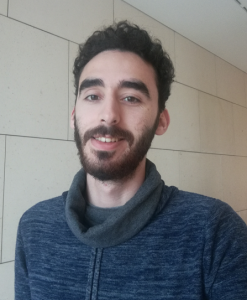 Dr. Daniel Canedo, NCC Portugal: Daniel Canedo received the Ph.D. degree in computer engineering at University of Aveiro, Portugal, in 2024. Since 2017, he has been a Research Fellow with the Institute of Electronics and Informatics Engineering of Aveiro. He has published in several international conference proceedings and journals. His research interests include computer vision and artificial intelligence. Mr. Canedo’s awards and honors include the first place on the NATO StratCom Competition – “How to detect malicious use of video and/or photographic content online?”, December 2018, Riga, Latvia.
Dr. Daniel Canedo, NCC Portugal: Daniel Canedo received the Ph.D. degree in computer engineering at University of Aveiro, Portugal, in 2024. Since 2017, he has been a Research Fellow with the Institute of Electronics and Informatics Engineering of Aveiro. He has published in several international conference proceedings and journals. His research interests include computer vision and artificial intelligence. Mr. Canedo’s awards and honors include the first place on the NATO StratCom Competition – “How to detect malicious use of video and/or photographic content online?”, December 2018, Riga, Latvia.
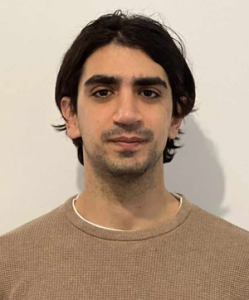 Mr Spiros Millas, NCC Cyprus: Mr Spiros Millas is a Research engineer at CaSToRC. He holds a BSc in Electrical and Electronic Engineering and a MSc in Artificial intelligence, with his main research expertise being computer vision, time series analysis and data science.
Mr Spiros Millas, NCC Cyprus: Mr Spiros Millas is a Research engineer at CaSToRC. He holds a BSc in Electrical and Electronic Engineering and a MSc in Artificial intelligence, with his main research expertise being computer vision, time series analysis and data science.
